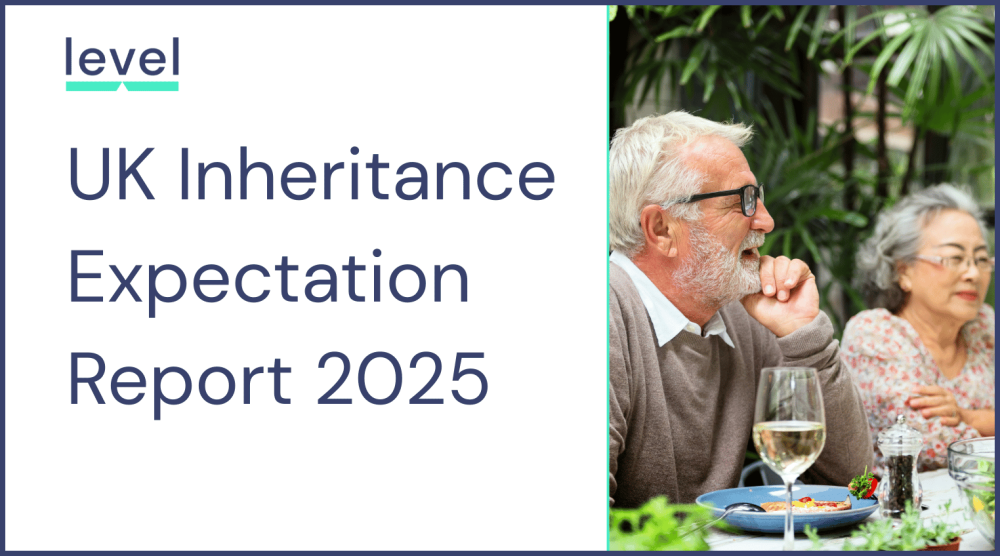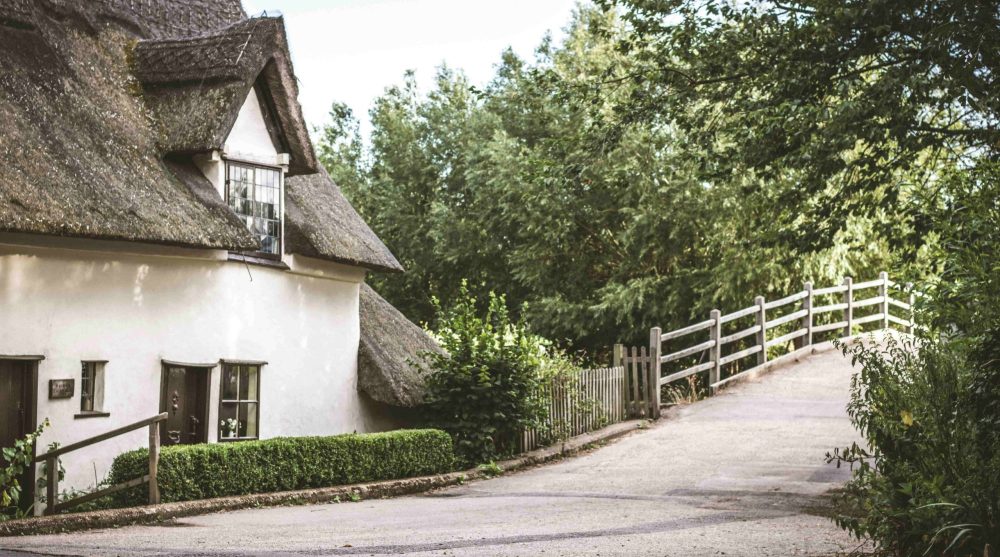
If someone dies without a Will, what happens to their estate?
In the instance of the deceased having not made a Will, or made a Will that isn’t considered legally valid, their estate is divided according to the rules of intestacy. The laws of intestacy set out a clear path for the provision of the estate to relatives of the deceased. These are based on a series of rules and hierarchies, which can mean different things for potential beneficiaries based on their relationship with the deceased, as well as where they’re based in the UK.
In this guide, we’ll describe intestacy rules in the UK, including the classification of relatives, differences in intestacy rules in Scotland, and what your role could be in the process with regards to probate and executing the process.
What is intestacy?
What are the rules of intestacy in the UK
Case categories for intestacy laws in the UK (England and Wales)
Administering an intestate estate – who can apply for probate intestacy?
Intestacy rules FAQs
How can Level help you with intestacy funding?
What is intestacy?
If you die without a Will in the UK, your death is considered ‘intestate’ – a word deriving from Latin origins meaning ‘without a testament’.
Dying intestate means your money and property will be divided according to a legal default rather than your own wishes. As set out in the Inheritance and Trustees’ Powers Act, the rules of intestacy in the UK apportion your estate based on family connections. Intestacy rules don’t consider the closeness of your relationships or who would benefit from being a beneficiary most, but rather stick to a strict hierarchical classification of who gets what.
Intestacy laws differ in Scotland to those in England and Wales, so it’s important to understand the distinctions between the two rulesets based on your location (see our section on intestacy rules in Scotland). You can also apply to become the administrator of an intestate estate, meaning you’ll be the one in charge of valuing and distributing inheritances as well as settling any debts attached to the estate – all according to intestacy laws (see our section on administering an intestate estate).
What are the rules of intestacy in the UK
Intestacy rules dictate how the estate of the deceased is distributed among existing relatives. The estate is allocated as per a strict hierarchical order, with the spouse or civil partner of the deceased in the primary position to inherit most of the estate.
Of course, not every person has a spouse or civil partner, nor may they have children, living parents or indeed any other relatives. The categories below will set out how different scenarios affect the distribution of the estate as per the deceased’s relationships. But first let’s look at a flowchart that establishes the hierarchy of relationships to which intestacy laws adhere.
Rules of intestacy flowchart for the UK
The intestacy rules flowchart below sets out the order in which relationships to the deceased are prioritised according to the laws of intestacy in the UK:
- Surviving spouse or civil partner
- Children or grandchildren
- Parents
- Full (both parents the same) siblings or their children
- Half (one parent the same) siblings or their children
- Grandparents
- Full aunts and uncles or their children
- Half aunts and uncles or their children
If the deceased does not have a spouse or civil partner, attention moves to the second classification (children or grandchildren). If the deceased has no living children or grandchildren, attention moves to the third classification (parents), and so on until a living relative is found.
If the deceased is unmarried and has no living relatives, the entire estate will go to the Crown. This is ‘bona vacantia’ – ‘ownerless goods’.
Case categories for intestacy laws in the UK (England and Wales)
The scenarios below lay out how the deceased’s estate would be distributed according to the rules of intestacy in England and Wales. For intestacy laws in Scotland, read on to find our section on Scottish intestacy rules below.
Married or in a civil partnership WITH children
The spouse or civil partner acquires all the deceased’s personal property and belongings (regardless of value) plus the first £270,000 of the assets (including property) attached to the estate.
If the estate is worth more than £270,000, the remainder of the estate over the value of £270,000 – known as the residue – is shared as follows:
- The spouse or civil partner gets an absolute interest (‘absolute’ means entitlement to the item of property not limited by any other person’s interest) in half of the residue.
- The other half of the residue is split equally between the surviving children. If a child has died and has children (the deceased’s grandchildren), that person’s children will inherit their share.
Note: a partner of the deceased who is not married to or in a civil partnership with the deceased at the time of death (i.e. a boyfriend or girlfriend) is NOT entitled to any share of the estate as per the laws of intestacy. Likewise, if an estranged spouse or civil partner is still legally bound to the deceased at the time of death, they ARE entitled to the estate as per intestacy rules.
Married or in a civil partnership WITHOUT children
The spouse or civil partner will receive all personal property and belongings (regardless of value) and all assets attached to the estate.
Unmarried WITH children or grandchildren
The children of the deceased, adopted or biological, will receive an equal share of the entire estate upon turning 18.
If a child is deceased, grandchildren or great-grandchildren can inherit their share
Unmarried WITHOUT children or grandchildren
If there is no spouse or civil partner, children, or grandchildren to inherit the estate, the entire estate is distributed in full to the first living classification of relative stated in the intestacy rules flowchart above.
If you’d like to find out more on intestacy rules in the UK and how they might apply to you, visit the gov.uk page on intestacy to get a simple breakdown of your circumstances.
Intestacy rules in Scotland
Intestacy laws in Scotland differ to those in England and Wales.
In Scotland, a surviving spouse or civil partner has ‘prior rights’ to the deceased’s estate under the rules of intestacy. Prior rights entitle the spouse or civil partner to:
- A share of up to £473,000 of the family home (if the home is in Scotland and the deceased was a resident at the time of death).
- A share of up to £29,000 in household contents.
- A share of up to £50,000 in moveable assets if the legal partner has children, or a share of up to £89,000 if the legal partner doesn’t have children.
The remainder of the estate is distributed according to ‘legal rights’, which shares the residue between the spouse/civil partner and any children, or any other immediate family.
Similar to English and Welsh intestacy laws, if the deceased doesn’t have a legal partner or children and grandchildren, their estate is allocated to immediate family as per the Succession (Scotland) Act.
Administering an intestate estate – who can apply for probate intestacy?
When someone dies with a Will in place, an Executor would be named in the Will to carry out the wishes of the deceased. However, when someone dies without a Will to their name, an Administrator is required to wrap up their estate. This is a role typically undertaken by a close relative or next of kin, or it can be a Solicitor.
If you wish to be the Administrator of the estate (known in Scotland as the ‘executor dative’), you’ll need to apply for letters of administration, which is a similar process to that of executing a Will.
Bear in mind that administering an intestate estate can become a complex process. Initial tasks will include valuing the estate, completing the probate application and relevant inheritance tax form, and swearing an oath – as well as paying a probate fee. You’ll also need to value and distribute inheritances, as well as settle any debts the estate owes, all of which will have to abide by the laws of intestacy.
Due to the complexity and labour involved in administering an estate, many Administrators will opt for the help of a probate specialist. A probate specialist will come at a cost of a few thousand pounds, but in many circumstances will be worth the money to families with neither the time nor expertise to properly handle the estate.
Should the deceased have no spouse, civil partner or surviving family, HM Treasury will be responsible for handling the process.
Intestacy rules FAQs
What if partners jointly own a property or other assets?
There are two ways to jointly own a property – beneficial joint tenancy and tenancy in common. If partners are beneficial joint tenants at the time of death, the surviving partner automatically inherits the other partner’s share of the property. If the partners are tenants in common, the surviving partner does not automatically inherit the other partner’s share.
If partners have a joint bank or building society account, the surviving partner will automatically inherit the entire account value.
Inherited assets that the surviving partner acquires through joint agreements like those above do not count as part of an intestate estate.
Who cannot inherit from an intestate estate?
Intestacy laws dictate that the following people are not entitled to inherit anything when a person dies without a will:
- Unmarried partners (sometimes known as common-law partners, although this pertains to couples who live together)
- Relations by virtue of marriage or arrangement (i.e. in-laws, stepchildren and foster children)
- Close friends
- Carers
In order for them to benefit from your estate, they need to be in your Will. In the case of your partner, you’ll need to get married or enter a civil partnership.
Can intestacy rules be challenged?
While you can’t challenge the rules of intestacy the same way you can challenge a Will, you can bring a claim under the Inheritance (Provision for Family and Dependants) Act 1975 for financial provision. This is an option if you believe your deceased loved one would have wanted to leave you an inheritance.
This is a route that the likes of unmarried/common-law partners or stepchildren who were not adopted may wish to take. Claims must be brought within six months of the granting of the administration of the estate.
You can also make a claim on ‘bona vacantia’ (ownerless goods) assets if the deceased has no legal partner or living relatives and their estate has been passed to the Crown. You can search for such an estate via the Government’s unclaimed estates list. A claim can be made within 12 years of the date of the administration being completed if you want to be paid interest on your share, or up to 30 years from the date of death without interest being paid.
Can cousins inherit under an intestacy in the UK
First cousins can be a beneficiary of an intestate estate but find themselves down the pecking order according to intestacy law. Legal partners, children, grandchildren, parents, full and half siblings and grandparents of the deceased are all ahead in line to inherit.
Second cousins are not entitled to inherit under intestacy rules in the UK.
Can shares of intestate estates be rearranged?
You can rearrange how an intestate estate is distributed, if everyone involved under the rules of intestacy agrees. Rearrangements of this nature must be made within two years of the death.
How can Level help you with intestacy funding?
There are potential costs attached to administering or contesting an intestate estate. If you’re unable to claim funding back from the estate itself this could present a financial challenge. In those instances, our funding solutions can offer a platform to help you proceed.
We’re experts in helping people get the financial support they need when managing inheritance processes. For those looking to apply for letters of administration or pay for legal support please get in contact. Level’s Estate Expense & IHT Funding or Private Client & Probate Dispute Funding solutions could help.
With no credit checks involved and any funding repaid out of estate proceeds we make things easy for you. Apply online today to see how we can help.
If you’d like to speak to a member of our team, you can also call us on +44 (0) 20 7205 2870 or contact us.
Interested in applying for funding?
Apply now using the button below. A member of the team will review your information and arrange a time to speak with you.
Apply for funding today


